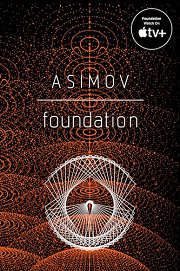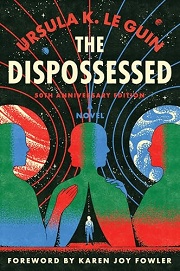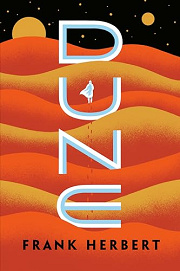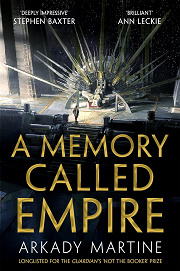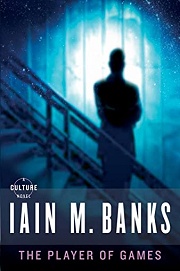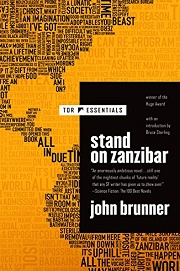Share your thoughts in a quick Shelf Talk!
Foundation by Isaac Asimov
An empire spanning the stars is crumbling, and one visionary plots a centuries-long rescue of civilization. Foundation launches a grand saga of ideas, following a beacon of knowledge established at the empire’s edge. Big concepts, sharp intrigue, and audacious foresight make this a landmark of science fiction.
Have you read this book? Share what you liked (or didn’t), and we’ll use your answers to recommend your next favorite read!
Love Foundation but not sure what to read next?
These picks are popular with readers who enjoyed this book. Complete a quick Shelf Talk to get recommendations made just for you! Warning: possible spoilers for Foundation below.
In Foundation, did you enjoy ...
... how social science and ideology shape societies, as seen through psychohistory’s lens?
The Dispossessed by Ursula K. Le Guin
If you were hooked by Hari Seldon’s idea that societies can be understood—and steered—at scale, and by how the Encyclopedists, Salvor Hardin, and Hober Mallow each leverage belief, governance, and trade to nudge history, you’ll love how The Dispossessed probes two contrasting civilizations through Shevek’s work and choices. Le Guin turns culture and economics into story engines, much like the early Foundation uses religion-as-tech and commerce as soft power.
... a sweeping, multi-generational chess match among empires and power brokers?
Dune by Frank Herbert
If the centuries-spanning arc from “The Encyclopedists” through “The Merchant Princes” thrilled you—the way the Foundation evolves from scholarly outpost to commercial power while weathering Seldon Crises—then Dune delivers that same vast scale. Paul Atreides faces imperial politics, ecological destiny, and long-laid plans (Bene Gesserit breeding schemes, mentat strategy) that echo the Foundation’s grand designs and long-horizon thinking.
... cunning diplomatic maneuvering inside a dominant galactic empire?
A Memory Called Empire by Arkady Martine
If you enjoyed how Salvor Hardin outfoxes Anacreon with the ‘religion of science’ and how Hober Mallow wields trade to outmaneuver rivals, A Memory Called Empire puts you inside the corridors of that kind of intrigue. Ambassador Mahit Dzmare navigates Teixcalaan’s court poetry, propaganda, and a succession crisis with the same razor-edged political savvy that propels the Foundation through its crises without firing a shot.
... a clear, strategic mission to destabilize an empire through intellect and calculated moves?
The Player Of Games by Iain Banks
If the Seldon Plan’s purposeful steps across crises grabbed you—the cool assurance that smart strategy can reshape history—then The Player of Games will hit the same nerve. Jernau Morat Gurgeh is dispatched to master the game of Azad, turning every rule and gambit into leverage against an authoritarian state, much like the Foundation’s leaders convert religion and commerce into tools to bend outcomes.
... a mosaic of linked episodes that coalesce into a portrait of a civilization in flux?
Stand on Zanzibar by John Brunner
If the episodic structure of Foundation—“The Encyclopedists,” “The Mayors,” “The Traders,” and “The Merchant Princes” building a larger historical arc—worked for you, Stand on Zanzibar uses a brilliant collage of news breaks, ads, dossiers, and character vignettes to assemble a whole society under pressure. That same snap-to-fit satisfaction of pieces forming a grand picture is front and center.
Unlock your personalized book recommendations! Just take a quick Shelf Talk for Foundation by Isaac Asimov. It’s only a few questions and takes less than a minute.
